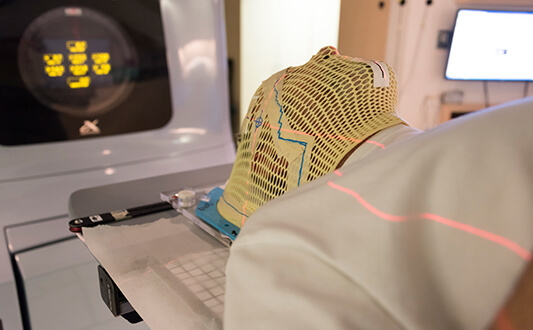Endoscopic operations continue to displace traditional open surgical interventions. In recent years, endoscopy has been introduced into the field of neurosurgery. It allows a surgeon to perform tough operations on the brain and spinal cord with minimal tissue damage.
Content
- The very core of endoscopic neurosurgery
- Spinal cord endoscopic surgery
- Endoscopic brain surgery
- Benefits of endoscopic neurosurgery
- Endoscopic surgery abroad with Booking Health
The very core of endoscopic neurosurgery
Endoscope is a multifunctional device equipped with a special camera. The essence of endoscopic operations lies in the introduction of surgical instruments and optical system through the incisions of minimal dimensions. The average width of the endoscope used in neurosurgery does not exceed 0.5 cm.
A surgeon monitors the procedure and has control with the assistance of an image on the screen. It is possible to enter the subarachnoid space, the brain and its cavity, the spinal canal with the aid of the endoscope.
Spinal cord endoscopic surgery
Intervertebral hernia is the most frequent cause of spinal surgery. Minimally invasive surgical interventions are performed with an endoscope to get rid of the hernia.
The human spinal column consists of the vertebrae. Intervertebral disks are located in between enabling mobility of the spine and a person can tilt it in any desirable direction. The intervertebral disc consists of a gelatinous nucleus and its surrounding fibrous membrane. If the membrane bursts and the nucleus comes out, the intervertebral hernia is diagnosed. Since the core fragment presses on the nerve roots and causes unpleasant symptoms, it must be removed.
Lately, specialists started to give preference to the endoscopic procedure which makes it possible to remove the hernia with minimal damage. Usually, it is excised and removed. If there is a large-sized hernia, they remove it in parts, as the incision could be too small.
Operations on the spinal cord include not only resection of hernias. This way, professionals can also remove small tumours or cut the adhesions which are connective tissue strands that have formed after inflammation or other surgical operations.
Endoscopic brain surgery
Endoscopic brain surgery does not require craniotomy and that is its main benefit. Access is gained through the small holes in the skull. Certain operations are performed with the access points through the nose, for instance when removing the pituitary gland tumours.
Doctors can remove hematomas of even a sufficient size up to 200 mm. Cysts, tumours, vascular malformations, brain aneurysms can be removed by the endoscopic surgery.
A surgeon observes everything on the screen, extensively monitoring all the vessels and nerves. This is why the risk of healthy tissues damage is minimal. This process helps to prevent complications that would cause irreversible neurological damage.
Surgery called ventriculoscopy is performed in pediatric neurosurgery when the endoscope is used to remove the liquid from the brain ventricles. Such a surgical intervention is required for hydrocephalus treatment to reduce intracranial pressure.
Benefits of endoscopic neurosurgery
Advantages of endoscopy implementation in the field of neurosurgery are obvious:
- There are no large incisions, tissues damage is significantly reduced
- No need for craniotomy
- Endoscope helps to reach areas of the brain previously inaccessible for surgical interventions
- Low risk of intra operative complications, including lethal ones
- Low risk of postoperative complications, such as bleeding or infection
- Reduced risk of damage to the blood vessels or peripheral nerves
- Accelerated rehabilitation period
- Less postoperative pain
- Good aesthetic effects as there are no large scars after surgery
Neurosurgical endoscopic interventions can reduce tissue trauma with a preserved volume of surgery. They are used both as independent types of treatment, and as a supplement to open microsurgical intervention.
Endoscopy provides a qualitative picture of anatomical structures hidden in the depth of the operating wound. It performs manipulations without additional retraction of the brain, without excision of its sites, without additional expansion of the skull skeletal defect.
Today, the use of endoscopy makes it possible to significantly improve the quality of treatment. Modern video endoscopy equipment allows you to obtain a three-dimensional image of the central nervous system structures and preserve high-quality video documents of the conducted interventions for future studies.
Endoscopic surgery is rapidly developing in developed European countries and it is progressively going to further in the years to come. No doubt, this is one of the most promising directions of modern neurosurgery.
Endoscopic surgery abroad with Booking Health
In European countries, endoscopic surgery is developing at a rapid pace. Its development will continue in the coming years, as it is one of the promising areas of modern neurosurgery.
Patients who cannot undergo endoscopic surgery at home due to the absence of the necessary equipment or qualified doctors can receive treatment at a foreign clinic. Booking Health will help with this. Booking Health is the medical tourism operator that has been engaged in the organization of minimally invasive neurosurgical operations in the world's leading hospitals for more than 10 years.
Booking Health specialists will help you with such important issues:
- Choosing a hospital and a doctor
- Direct communication with the chosen hospital and doctor
- Preliminary preparation of the medical program, explanation of the procedures included
- Reducing the cost of medical services by eliminating extra fees for foreigners (saving up to 50%)
- Making appointment without being included in the main waiting list
- Support at all stages of treatment
- Communication with the hospital after treatment completion, receiving and translating medical records
- Financial control
- Organization of additional examinations or neurological rehabilitation, if necessary
- Booking accommodation, tickets, transfer; translation services
On the Booking Health website, you will find up-to-date information about hospitals, doctors and treatment methods, and you can also send a request for treatment to the chosen hospital.
Choose treatment abroad and you will for sure get the best results!
Authors:
This article was edited by medical experts, board-certified doctors Dr. Nadezhda Ivanisova, and Dr. Bohdan Mykhalniuk. For the treatment of the conditions referred to in the article, you must consult a doctor; the information in the article is not intended for self-medication!
Our editorial policy, which details our commitment to accuracy and transparency, is available here. Click this link to review our policies.
Sources:
Read:
Innovative Glioblastoma Immunotherapy Treatment
Don't know where to start?
Contact Booking Health






